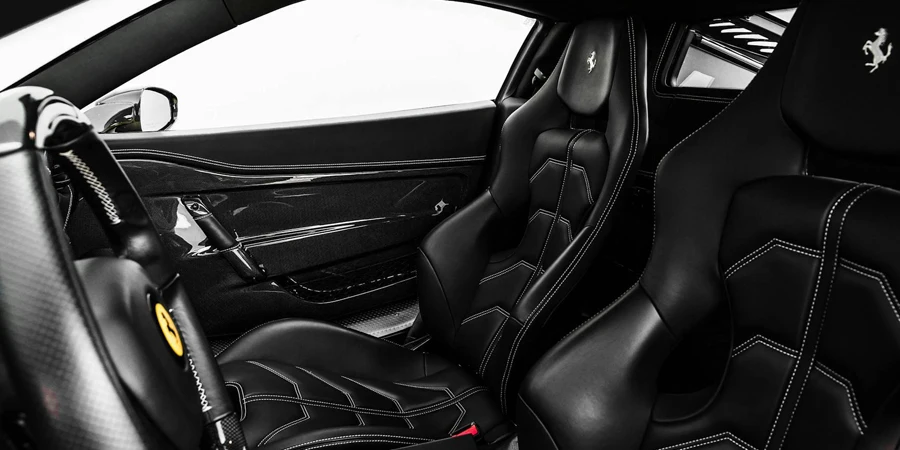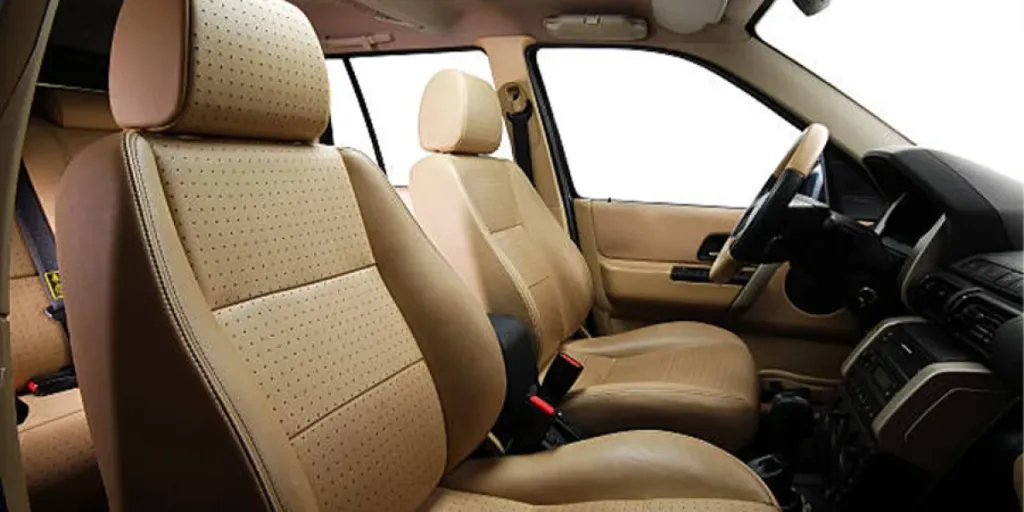Table of Contents
● Introduction
● Market overview
● Different types and their features
● Things to consider when selecting modified car seats
● Conclusion
Introduction
The market for modified car seats showcases a variety of innovative solutions designed to improve comfort and accessibility for diverse vehicle fleets. These advancements cater to businesses seeking to upgrade their corporate cars with luxurious materials like leather and robust faux leather, or those requiring specialized functionality through electronic swivel and lowering seats for enhanced accessibility in company transport vehicles. As market demands shift towards greater customization and functionality, the integration of features such as padded memory foam and spill-resistant covers offers substantial benefits. Such modifications not only elevate the driving experience but also optimize vehicle usability for employees with specific accessibility needs. This comprehensive guide provides in-depth analysis on the variety of modified car seats available, discussing their features, market trends, and strategic considerations for businesses aiming to make informed purchasing decisions to improve their operational efficiency and employee satisfaction.

Market overview
The modified car seats market is currently experiencing robust growth driven by technological advancements and rising consumer demands for enhanced comfort and safety features. According to industry reports from Mordor Intelligence, the overall automotive seat market, encompassing both OEM and aftermarket segments, was valued at USD 80.25 billion and is projected to reach USD 109.2 billion by 2029, growing at a CAGR of 5.27%. This growth is attributed to factors such as the rising demand for luxury vehicle features, including climate-controlled seats and lightweight frames, which contribute significantly to the expanded scope of the modified car seats sector. Asia-Pacific is emerging as a pivotal region in this market, spurred by increasing vehicle production and a growing middle class with higher disposable incomes, especially in countries like China and India. These regions are anticipated to lead in terms of market demand, presenting substantial opportunities for both local manufacturers and international players looking to expand their footprint in these dynamic markets.
The market is characterized by a high degree of competition among established players who are continually innovating and expanding their product ranges to include more sophisticated features such as electronically adjustable seats, integrated massage functions, and advanced ergonomic designs. According to Mordor Intelligence, the Asia-Pacific region is expected to exhibit the fastest growth, driven by increasing vehicle production and sales in countries such as China, where the market is projected to expand significantly. For instance, the market’s annual growth rate in the Asia-Pacific region is projected to surpass 6% over the next five years. Additionally, recent data indicates that the demand for powered and heated seats in this region is rising sharply, contributing to an increase in market value. The continuous investment in research and development to meet stringent safety and environmental regulations underscores the market’s commitment to innovation and sustainability, paving the way for sustained growth and enhanced value for consumers and stakeholders alike.

Different types and their features
Manual swivel seats
Manual swivel seats are designed to facilitate easier ingress and egress for individuals with limited mobility. These seats rotate 90 degrees and slide forward manually, making them particularly advantageous for elderly users or those with physical disabilities. According to Mobility in Motion, the primary benefit of manual swivel seats lies in their simplicity and reliability, as they require no electronic components, thus reducing potential maintenance issues. Suitable for a wide range of vehicles, these seats are especially popular in personal vehicles where budget constraints might limit more advanced solutions. Their manual operation also ensures that they remain functional even in the event of a power failure, providing consistent and dependable accessibility.
Electronic swivel seats
Electronic swivel seats offer enhanced ease of use and advanced technological features compared to their manual counterparts. These seats are equipped with electronic controls that allow them to rotate and slide out of the vehicle at the push of a button. This feature is particularly beneficial for users who may lack the physical strength to operate a manual swivel seat. According to Mobility in Motion, electronic swivel seats can be programmed to follow a pre-set path, ensuring smooth and precise movements. They are compatible with a variety of vehicle models, including those with limited space for maneuverability. The automation of these seats significantly reduces the physical effort required by the user, making them ideal for both personal and commercial applications where user comfort and convenience are paramount.
Heated and ventilated seats
Heated and ventilated seats are increasingly becoming standard in luxury vehicles, providing enhanced comfort regardless of the weather conditions. Heated seats are particularly popular in colder climates, offering warmth and comfort during winter months. Ventilated seats, on the other hand, are equipped with fans or perforated inserts that circulate air, providing cooling effects during hot weather. According to Simoniz, these seats improve overall driving comfort by maintaining an optimal temperature, which can reduce fatigue on long journeys. The integration of climate-controlled features in car seats reflects a growing trend towards enhancing passenger comfort through advanced technologies. These features not only add to the luxury feel of a vehicle but also increase its market value and appeal to potential buyers.

Racing Seats
Racing seats are built for performance and safety, catering to the needs of professional racers and car enthusiasts who enjoy high-speed driving. These seats are typically made from lightweight materials like carbon fiber or fiberglass to reduce the vehicle’s overall weight. They feature deep side bolsters and harness slots to keep the driver securely in place during sharp turns and high-speed maneuvers. Racing seats often come with fire-resistant materials and are designed to meet stringent safety standards set by racing organizations.

Specialized car seat covers
Car seat covers serve to protect the underlying material and enhance the aesthetics of the vehicle interior. Anti-spill and universal fit covers, according to Chovm.com, are designed to be easy to maintain and offer protection against spills and stains, making them perfect for families with young children or pets. Faux leather and genuine leather covers add aesthetic appeal and durability, providing a cost-effective alternative to full leather seats. Padded memory foam covers, often equipped with massage features, significantly enhance comfort during long drives, offering ergonomic support and luxury. These specialized covers are not only functional but also add a layer of personalization to the vehicle, catering to various user preferences and needs.
Things to consider when selecting modified car seats
Vehicle and seat compatibility
Ensuring the chosen seat fits the vehicle model and user needs is paramount when selecting modified car seats. According to Mobility in Motion, it is crucial to consult with a vehicle adaptation specialist who can assess compatibility based on the vehicle’s make and model. Factors such as the available space for seat rotation, the vehicle’s door size, and the mounting points for the seat must be evaluated to ensure a proper fit. Additionally, some seats are designed specifically for certain types of vehicles, such as SUVs or sedans, and may not be universally compatible. Proper installation is also vital to maintain the integrity of the vehicle’s safety systems, making professional assessment and installation a recommended practice.
User’s physical needs
Matching seat features with the user’s mobility and physical requirements is essential to maximize the benefits of modified car seats. According to Mobility in Motion, individuals with different levels of mobility will require varying seat functionalities. For example, manual swivel seats might suffice for users with moderate mobility, whereas electronic swivel and lowering seats are better suited for individuals with severe mobility impairments who rely on wheelchairs. Assessments should consider the user’s ability to transfer independently, the need for additional support such as headrests and armrests, and any specific health conditions that could influence the choice of seat. Personalized evaluations ensure that the selected seat provides optimal comfort, safety, and accessibility.
Maintenance and care
Guidelines for maintaining different seat materials are important to extend the lifespan and functionality of modified car seats. According to Simoniz, leather seats require regular conditioning to prevent drying and cracking, while vinyl seats need to be cleaned with non-abrasive cleaners to avoid damage. Fabric seats, on the other hand, are prone to stains and should be treated with fabric protectors and cleaned with appropriate upholstery cleaners. Routine maintenance not only preserves the aesthetic appeal of the seats but also ensures that they remain hygienic and comfortable for daily use. Users should follow manufacturer recommendations for cleaning and care to avoid voiding warranties and ensure long-term durability.
Aesthetics vs. functionality
Balancing the look with practical benefits is a key consideration when selecting modified car seats. While leather seats offer a luxurious appearance and are easy to clean, they may not provide the best comfort in extreme temperatures unless they are climate-controlled. Vinyl seats, though less expensive and easier to maintain, might not offer the same level of comfort and durability as leather. Fabric seats, while comfortable and affordable, may require more frequent cleaning and maintenance. According to Simoniz, users should weigh the importance of aesthetics against functionality, considering factors such as climate, frequency of use, and personal preferences to choose the best material for their needs.

Budget and cost-effectiveness
Analyzing the investment versus the anticipated benefits is crucial for making cost-effective decisions. According to Chovm.com, the initial cost of modified car seats can vary widely depending on the features and materials. While higher-end options like electronic swivel and lowering seats or leather upholstery may have higher upfront costs, they offer greater comfort, durability, and user satisfaction. Conversely, more affordable options like manual swivel seats or fabric covers might be suitable for those with limited budgets but still require careful consideration of long-term maintenance and replacement costs. It is important to consider the total cost of ownership, including installation, maintenance, and potential upgrades, to ensure that the investment provides value over time.
Conclusion
Choosing the right modified car seat is crucial for enhancing the driving experience and maintaining the vehicle’s functionality and value. The appropriate seat can significantly improve comfort, accessibility, and safety for users with varying needs, from increased mobility assistance to enhanced ergonomic support. For individuals with mobility impairments, features such as swivel and lowering functions can facilitate easier transfers in and out of the vehicle, thereby promoting independence and convenience. Additionally, climate-controlled seats and advanced cushioning materials like memory foam can greatly enhance comfort during long drives, reducing fatigue and improving overall driving satisfaction.
Moreover, well-maintained and thoughtfully selected seats contribute to the overall aesthetic appeal and resale value of the vehicle. Leather and high-quality vinyl seats, for instance, not only offer a luxurious look but also stand up well to wear and tear, making them a sound investment. Regular maintenance, tailored to the specific material of the seats, ensures their longevity and continued functionality. By carefully evaluating factors such as vehicle compatibility, user requirements, maintenance needs, and budget considerations, vehicle owners can make informed decisions that provide lasting benefits.




